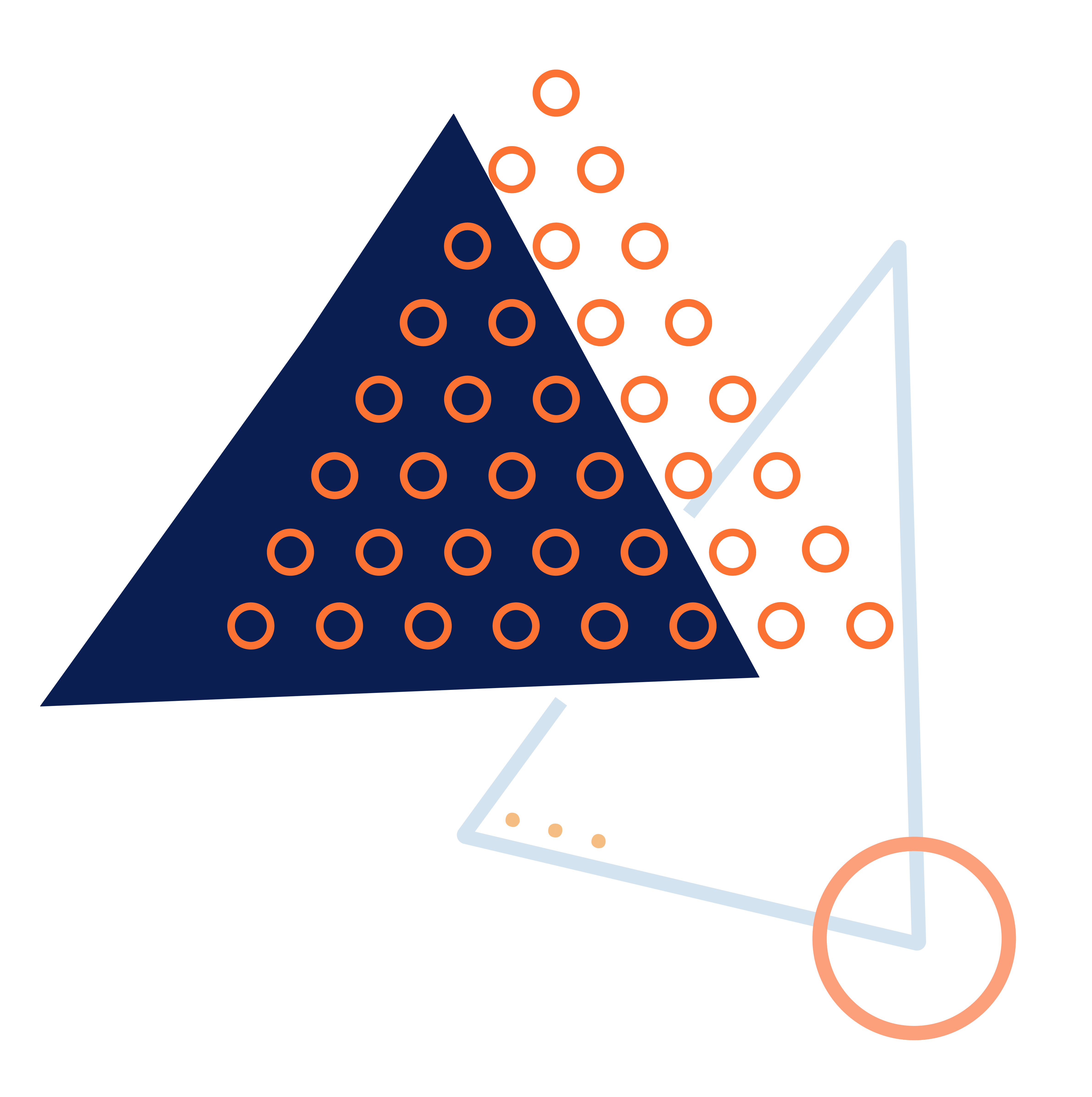

20 March 2023
Article
Reflections on “Power, Politics and People of the Move”
Our Generation for Inclusive Peace
In 2022, OGIP’s Research Community selected “Power, Politics, and People on the Move” as the theme for the Research Series following an open call for suggestions. The theme was selected as a timely homage to the reality of the world we live in that ever-necessitates people to move for safety, stability, opportunity, resources, and sometimes as a result of coercion. By the end of 2020, UNHCR estimated that there were 80 million forcibly displaced people in the world as a result of armed conflict and violence, and millions more each year due to other factors, not limited to natural disasters, lack of financial opportunities and safety nets, as well as impingement on personal freedoms. We recognise people on the move (POM) to include asylum seekers, refugees, internally displaced people, stateless people, traveller communities, migrant workers, victims and survivors of trafficking and more, who have historically been some of the most marginalised communities in the world.
Throughout the development of the Research Series by OGIP’s contributors, the world has seen no end to the politicisation of POM. In February 2022, news broke out of the Russian invasion of Ukraine. Western countries have extended their support to Ukraine by providing economic, humanitarian and defensive military assistance, and have set up schemes to welcome Ukrainian refugees displaced by the war. However, academics, activists, practitioners and local public have critiqued the stark contrast in the media reporting and the government’s policies in countries in the EU, the UK and the US towards welcoming Ukrainian refugees versus racialised groups from the global south, such as refugees from Afghanistan, Syria, Mexico and Haiti.(1,2,3) Whilst the Russian invasion of Ukraine is the first time post-Cold War that a country in the Global North has had its territory openly negotiated, starting with the Russian annexation of Crimea in 2014, we must realise the idea of the nation state is thoroughly a Western concept, and that colonial pursuits and border conflicts in the Global South have persisted. Furthermore, crude liberal development policies and foreign interventions instituted by the Global North have destabilised countries in the Global South, creating a lack of economic opportunities and insecurity contributing to citizens’ immigration. Even more recently, earthquakes in Turkey and Syria are exacerbating already precarious safety situations for locals, and have displaced over 5 million people.(4) As climate change worsens, the prevalence and intensity of natural disasters will increase, thus, displacing more people. Additionally, while transnational migrants tend to receive the most media attention, we must not forget the greatest percentage of POM are actually Internally Displaced People (IDPs), totalling at 59.1 million people according to the Internal Displacement Monitoring Centre (IDMC).(5) It’s time we consider what purpose borders serve, for whose interests, and how we put power back into the hands of people most impacted by events and circumstances leading to movement.
OGIP’s Research Community invited research that covered the breadth of POM experiences. Recognising that in many contexts POM are faced with xenophobic, racialised or colonised media bias; violence and detention both during and after movement; exclusion from decision-making; social and economic marginalisation; and are often left behind by states and institutions. And yet, the histories POM carry are nuanced, rich, complex, powerful, and brave. The submissions we received emphasised that whilst people and goods move through borders, people also carry borders with them as they move through space and time.
In each piece, OGIP researchers called the political and personal construction of the border into question. Marie-Jean Kenji Maghoma intricately explores the stories of displaced people moving into, around and out of Rwanda eventually reaching the UK using music and spoken-word poetry. Her piece reflects on key questions around where, what and how culture is formed, as well as how culture evolves with the movement of people, whilst also commentating on experiences of violence and peace. Rukhsar Balkhi, an OGIP advocates network member, details a personal account of her evacuation story, reflecting on both the freedom and opportunities movement provided her, such as a scholarship to complete her education, as well as the challenges and obstacles to feeling a sense of belonging in a new place and overcoming trauma. Specifically, we hear in Marie-Jean Kenji’s spoken word poetry and Rukhsar’s essay how global politics have impacted their personal lives as POM. Both researchers reflect on the notion of belonging and how the image of a POM impacts societal attitudes of ‘us versus them’. Further, both researchers negotiate how their personal identities have altered, the mandatory cultural exchanges that have occurred, and furthermore how they’ve carried the border with them in daily life.
Jorge Herrera Valderrábano frames Mexico’s drug and cartel history against the backdrop of the United States’ domestic policy. His piece highlights unintended consequences for the youth of Mexico; namely, the impact on opportunities, safety, and the reality of decision making. Jorge’s piece exemplifies the permeability of the border by both people and goods through his commentary on combating drug trafficking and the impact on social inequality, demonstrating how interconnected people and policy are. He concludes that better policies are required from the government to prevent young people from encountering violence and unfair incarceration. Florence Waller-Carr makes a similar crucial warning in calling on the UK government to adopt National Action Plans (NAPs) that better serve POM and to live up to the ideals of the Women, Peace, and Security Agenda. Florence calls into question, whose peace and security is considered as part of the NAPs, highlighting the re-production of racialised and colonial hierarchies.
Florence and Marie-Jean Kenji showcase the significant role border politics plays at a personal and global level. Both researchers reflect and comment on the UK Nationality and Borders Act, specifically on the UK-Rwanda immigration deal, and the impact this will have on individuals. As Marie-Jean Kenji writes “people make up and sustain culture… people should be centred in policies for refugees and asylum seekers”. When policy making and implementation are not people-centred, POM are subsequently at risk of being left behind, further marginalised or excluded. In the present reality, Florence highlights how policies under the compliant environment “[are] created to block access to public services, as well as push migrants, refugees and asylum seekers into extreme poverty.”
This brings into perspective the degree of agency and choice provided to POM. Despite Rukhsar having the opportunity to pursue higher education, she questions whether “...every girl [will] be able to establish themselves in a new nation? What about Afghan women' rights and freedoms? Are they able to attend school? To enrol in college?”. The Mexican youth Jorge’s piece centres on, have been forced to make similar calculations about their own opportunities at home. This has forced many young people to migrate, while others have chosen to mobilise to change their circumstances and those of the future generations.
In the development stage of this series, we faced language barriers and time zone barriers; dissected the meaning of POM; and sorted through a diversity of experiences and research proposals. We learned that these obstacles and epistemic ponderings were not unrelated to the substantive content of the pieces - these are real challenges POM face in new contexts and when coming up against restrictive policies. In these challenges, the OGIP researchers found windows of opportunity and innovative solutions, not only for publishing the research series but also in policy and praxis. For example, Marie-Jean Kenji’s spoken word uses music from different cultures as a bridge to understanding; despite the lyrics being in a different language any listener can follow the emotional story line of the piece through music.
We were pleased to have showcased global examples of POM from Rwanda, to Afghanistan, the UK and Mexico, and that many of our contributors had personal ties to their pieces. The personal voices featured in this series are a testament to how necessary it is for people with lived experience as POM to be centred in policy making decisions. If people with lived POM experience are given opportunities to participate in discussions around borders perhaps it is possible to create a safer and more equitable passage for movement. Furthermore, it is up to governments and civil society organisations to support their contributions and eliminate barriers to their participation.
OGIP wants to continue this conversation through our research and advocacy, please get in touch at OGIPresearch@gmail.com if you are interested in helping us devise policy recommendations, push forward youth-led advocacy on this issue, and plan events to showcase this research and advocacy.
(1) https://www.chathamhouse.org/2022/03/ukraine-exposes-europes-double-standards-refugees
(2) https://rsilpak.org/2022/a-two-tier-system-afghan-and-ukrainian-arrivals-in-the-uk/
(3) https://edition.cnn.com/2022/03/29/us/ukrainians-us-mexico-border-cec/index.html






